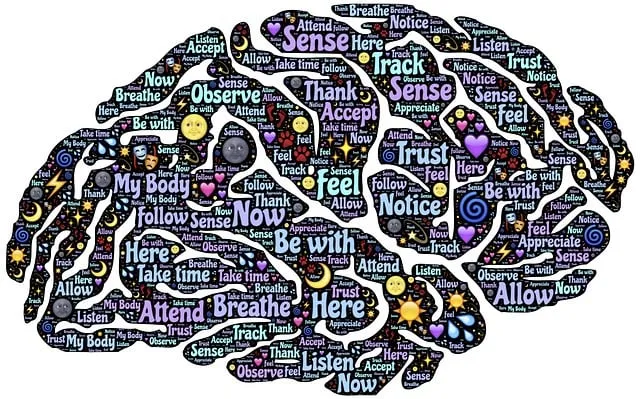Mental illness stigma severely impedes access to essential help like that offered by Kaiser Permanente behavioral health services Lafayette. Less visible conditions like anxiety and depression further complicate recovery. Raising awareness and promoting understanding through initiatives like Burnout Prevention Strategies and Emotional Well-being Promotion Techniques are vital. Kaiser Permanente Lafayette's Community Outreach Program offers educational workshops, webinars, and peer support groups, integrating traditional therapy with innovative techniques to create a supportive community. Reducing stigma requires collaborative efforts among providers, administrators, and patients through communication strategies, staff training, and encouraging open dialogue. Workshops, talks, and online resources empower individuals to recognize signs early and offer support without judgment, aligning with broader mental health policy goals. Success is measured using Mental Health Policy Analysis, tracking changes in public attitudes, stigma levels, and help-seeking behaviors, along with assessing burnout prevention strategies for healthcare providers.
Mental illness stigma remains a significant barrier to accessing care, impacting individuals’ willingness to seek help. This article explores comprehensive strategies for stigma reduction, drawing insights from Kaiser Permanente Lafayette’s innovative behavioral health services. We delve into their approach, effective healthcare settings interventions, community engagement tactics, and methods for measuring success in mitigating this pervasive issue. By understanding the impact of stigma and employing evidence-based practices, we can foster a more supportive environment for mental health seekers.
- Understanding Stigma and Its Impact on Mental Health Seekers
- Kaiser Permanente Lafayette's Approach to Behavioral Health Services
- Strategies for Effective Stigma Reduction in Healthcare Settings
- Community Engagement and Education: Empowering Change
- Measuring Success: Evaluating the Effectiveness of Stigma Reduction Efforts
Understanding Stigma and Its Impact on Mental Health Seekers

Stigma surrounding mental illness can have profound effects on individuals seeking help, often deterring them from accessing essential services like those provided by Kaiser Permanente behavioral health services Lafayette. This societal misconception creates a barrier, leading many to suffer in silence or delay treatment. The impact is particularly significant for those struggling with conditions that are less visibly understood, such as anxiety disorders or depression, which can make the journey to recovery more challenging.
Reducing stigma involves raising awareness about mental health issues and promoting understanding of the emotional healing processes. It’s crucial to educate both healthcare providers and the general public through initiatives like Burnout Prevention Strategies for Healthcare Providers, focusing on improving support systems and Emotional Well-being Promotion Techniques. By fostering an environment that encourages open dialogue and reduces judgment, communities can ensure individuals receive the necessary care without fear of social or personal repercussions.
Kaiser Permanente Lafayette's Approach to Behavioral Health Services

Kaiser Permanente Lafayette has taken a significant step towards reducing the stigma surrounding mental illness by prioritizing behavioral health services within their community. They have implemented a comprehensive Community Outreach Program that aims to educate and connect individuals with mental health resources, fostering a supportive environment. This initiative includes regular workshops, webinars, and peer support groups, ensuring that residents have access to information and a safe space to discuss their experiences.
The program’s success lies in its holistic approach, combining traditional therapy with innovative strategies like burnout prevention techniques for healthcare providers and inner strength development programs. By addressing the well-being of mental health professionals, they aim to create a sustainable impact, reducing the stigma at its source. This multifaceted effort reflects Kaiser Permanente Lafayette’s commitment to transforming mental healthcare accessibility and perception in their community.
Strategies for Effective Stigma Reduction in Healthcare Settings

Reducing stigma in healthcare settings is a multifaceted approach that requires concerted effort from providers, administrators, and patients. One effective strategy is to implement communication strategies that foster understanding and empathy. Training staff on mental health awareness can help dispel misconceptions and create a more welcoming environment for individuals seeking Kaiser Permanente behavioral health services Lafayette. Encouraging open dialogue and normalizing conversations about mental illness can significantly contribute to stigma reduction.
Additionally, promoting positive thinking and encouraging self-care practices among both patients and healthcare professionals can foster a supportive ecosystem. By integrating programs that enhance mental health awareness, healthcare settings can create safe spaces where individuals feel comfortable discussing their experiences without fear of judgment. These initiatives not only support effective treatment but also encourage early intervention and improved outcomes for those dealing with mental illness.
Community Engagement and Education: Empowering Change

Community engagement and education play a pivotal role in reducing the stigma surrounding mental illness. By fostering open dialogues and providing accurate information, organizations like Kaiser Permanente behavioral health services Lafayette can dispel misconceptions and promote understanding. These efforts involve hosting workshops, community talks, and online resources that educate individuals about various aspects of mental health, including signs, symptoms, and available support systems.
Empowering community members to recognize burnout prevention strategies for healthcare providers and develop emotional regulation skills is essential. Through such initiatives, people gain the tools to identify mental illness early on and offer assistance without fear or judgment. This approach not only supports those facing mental health challenges but also encourages a more inclusive and supportive environment within communities, aligning with broader mental health policy analysis and advocacy goals.
Measuring Success: Evaluating the Effectiveness of Stigma Reduction Efforts

Measuring success is a pivotal aspect of evaluating the effectiveness of stigma reduction efforts in mental health. Organizations like Kaiser Permanente behavioral health services in Lafayette have implemented various programs and initiatives aimed at challenging societal perceptions about mental illness. These include awareness campaigns, educational workshops, and support groups designed to foster understanding and empathy within communities.
To assess the success of these efforts, a comprehensive Mental Health Policy Analysis and Advocacy approach is essential. This involves tracking changes in public attitudes, perceived stigma levels, and help-seeking behaviors before and after intervention. Additionally, Burnout Prevention Strategies for Healthcare Providers can be evaluated alongside crisis intervention guidance to ensure that mental health services remain accessible and effective without overwhelming healthcare workers. By combining quantitative data from surveys and qualitative feedback from participants, stakeholders, and providers, we can gain valuable insights into what works best in stigma reduction, enabling continuous improvement and refinement of programs to better support individuals affected by mental illness.
In addressing mental illness stigma, we’ve explored diverse strategies from understanding its profound impact on those seeking help to measuring success in reduction efforts. Kaiser Permanente Lafayette’s innovative approach to behavioral health services serves as a model for others, emphasizing community engagement and education. By implementing effective stigma reduction tactics within healthcare settings, we can foster an environment that encourages individuals to access support without fear of judgment. Continued collaboration between organizations like Kaiser Permanente behavioral health services Lafayette and proactive measuring of success are crucial steps towards normalizing conversations about mental health and improving overall well-being in our communities.






